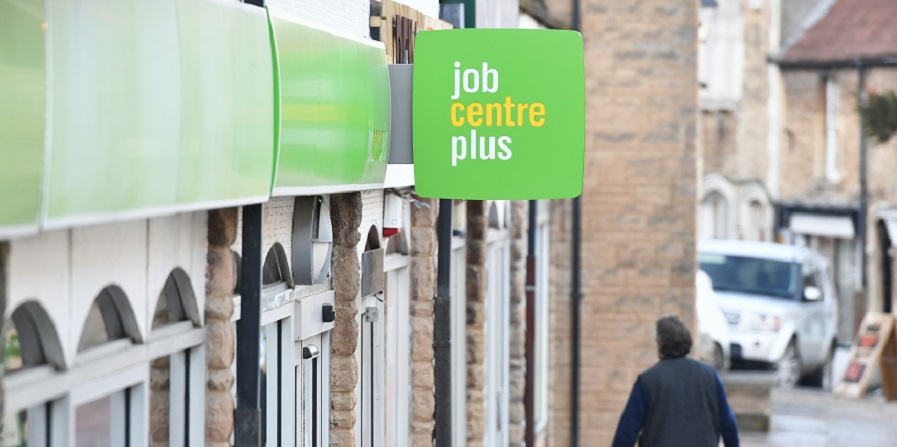Department ramps up number of locations offering support with applications to about 150 – although Wales, Scotland, and Northern Ireland are comparatively poorly served
In the last month, the government has set up about 150 centres across the UK to offer an assisted digital service for EU citizens wishing to apply for settled status, but lacking the skills or access technology needed to do so.
The first tranche of assisted digital centres was unveiled by the government a month ago. Since then, numbers are understood to have grown to about 150 locations, across a total of 104 listed UK towns and cities. A handful of towns – including Torquay, Thetford, Ely, and Lidsey – have been removed from the list, but frequent additions have seen the overall number grown steadily. Most recently, 16 towns were added yesterday.
For EU citizens without access to a computer, or lacking the skills or confidence to use one, the centres offer face-to-face support for filling out the online application to attain settled status.
Telephone support is also being offered and, in 46 UK towns and cities, assisted digital tutors are available to make home visits to users who need help with their application.
104
Number of UK towns and cities hosting assisted digital support service centres
£25
Payment each centre will receive for every 45-minute support session
25
Number of languages GOV.UK guidance will be provided in – including all 25 official EU languages, plus Welsh
PublicTechnology understands that all support – either on the phone or in person – will only be offered in English. But, according to the government, by the end of March all the relevant guidance and information on GOV.UK will be translated into the 23 other official EU languages and also into Welsh.
The assisted digital service is being delivered by inclusion training specialist We Are Digital. The Warwick-based firm is currently seeking local partners around the UK to support the delivery of training, and is inviting applications from council, libraries, and community and third-sector organisations.
Potential partners wishing to join the network of assisted digital centres can apply to provide both a location and in-house employees to deliver support – who will be trained to do so via a one-hour instruction video provided by We Are Digital. Alternatively, organisations can apply merely to provide a suitable site where the assisted digital service can be offered, with staff then provided by the training company.
Partners will be remunerated at a rate of £25 for a 45-minute support session – which We Are Digital estimates will be sufficient for the completion of a settled status application.
Geographic split
With locations in 90 towns and cities spread widely throughout the country, England is already very well served by the assisted digital service. The vast majority of the locations where home visits are available – 41 out of a total of 46 – are also in England.
With sites at just seven towns across the country – Cumnock, Dundee, Duns, Edinburgh, Inverness, Kilmarnock, and Shetland – Scotland has more patchy coverage, particularly given how widely its population is spread.
Even inhabitants of its largest conurbation, Glasgow, need to journey 20 miles to Kilmarnock – although Giffnock, a suburb of the city, is listed among the locations offering home visits. Aberdeen, meanwhile, is 60 miles from any assisted digital service centres.
The only other Scottish town where home visits are available is Tranent, in the south east of the country.
46
Areas of the UK in which support home visits are available
60 miles
Nearest source of face-to-face support for the 200,000 citizens of Aberdeen, Scotland’s third-largest city
£9m
Additional grant funding that will shortly be awarded by the Home Office to community and voluntary organisations offering projects to help vulnerable EU citizens with their settled status applications
Wales has support centres in six towns: Barry; Llanelli; Merthyr Tydfil; Powys; Rhyl; and Wrexham. Home visits are also available in Risca and Colwyn Bay.
Northern Ireland thus far can only offer on-site assisted digital support in Lisburn, with home visits available in Bangor.
Centres will be added in more towns and cities in the coming weeks and months as applications are made to We Are Digital.
Further funding
Additionally, the Home Office will shortly award up to £9m in grant funding to projects designed to “deliver practical assistance to vulnerable or at-risk EU citizens and their family members applying to the EU Settlement Scheme”.
A bidding process for the funding – which is available to community and voluntary-sector bodies – took place earlier this year. Money will given out across two tracks: for projects costing between £5,000 and £40,000; and for those costing up to £750,000. Grant agreements are due to be signed in April, and all funding provided must be spent during the 2019/20 financial year.
“The key outcome is for those funded to provide practical application support to vulnerable EU citizens and their family members,” the government said, in an early-engagement notice published last year. “The Home Office aims to ensure grants are awarded across the UK and to organisations that work with a diversity of at-risk groups, so that support is delivered to those that need it most.”
The application process for settled status has faced a range of criticisms, most notably for the fact that the app through which EU citizens can scan their passports works only on Android smartphones and tablets. This is due to its need to access a device’s near-field communication capability. To date, Apple has largely prevented any external apps from accessing the iPhone’s NFC, but the Home Office has said it remains confident of reaching an agreement that would mean the document-checking app could be used on the tech firm’s devices.
In the meantime, the Home Office has set up 13 locations around the UK where applicants can make an appointment to scan their documents. Once the settled status scheme launches in full later this month in March, this is set to be expanded to a total of about 50 sites. The option of posting documents will also be made available.
There are three million EU citizens who live in the UK. It is understood that 150,000 of these – some 5% of the total – have already applied during the ongoing public testing phase.



